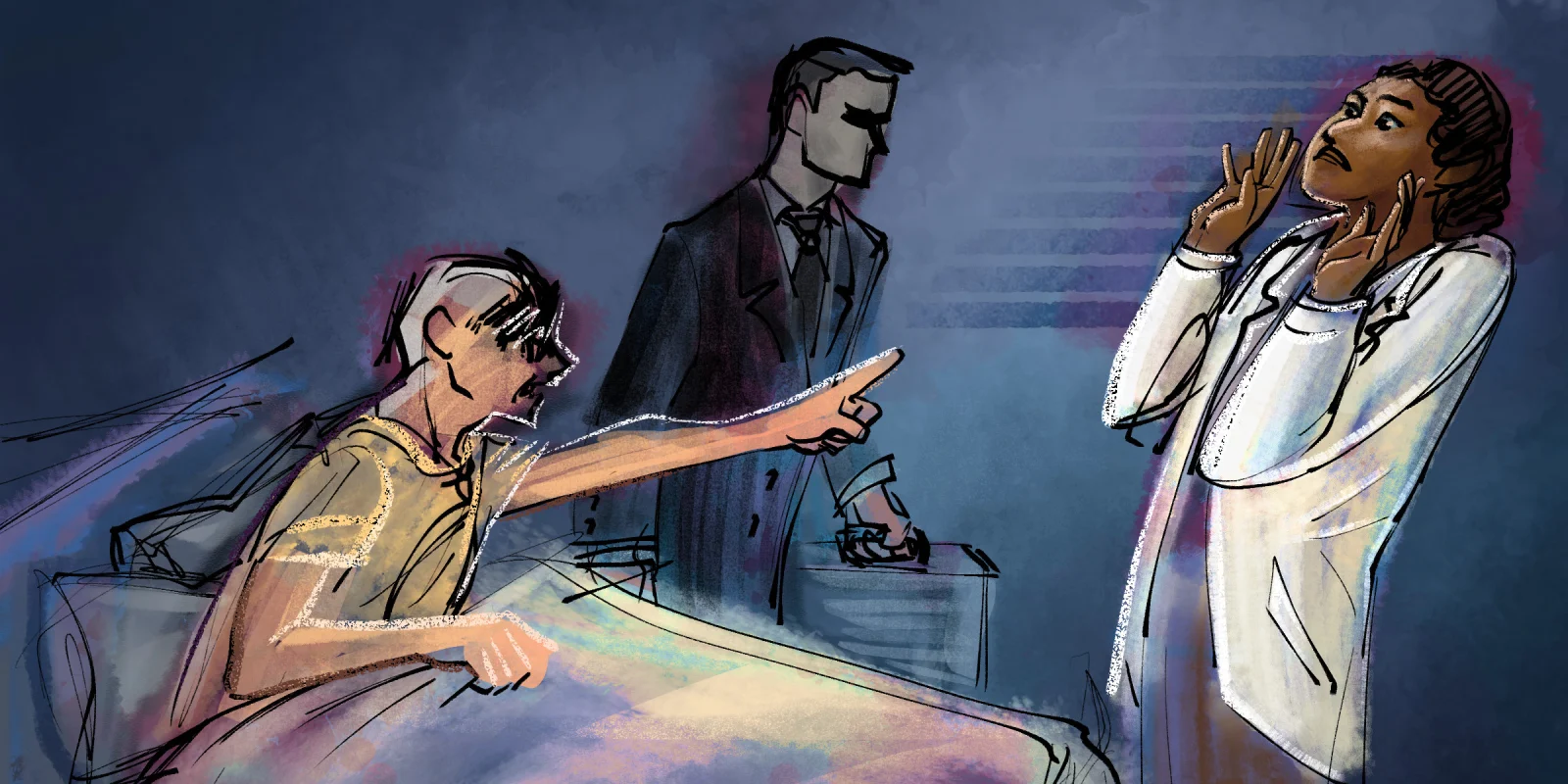“Write every chart as if it is being reviewed in a courtroom,” was the advice offered by an attorney in a lecture right before graduation. I interpreted this to mean that forevermore, I’d need to have an acute awareness of how each clinical note I’d ever write — each medical decision I’d ever make — could be perceived in a malpractice lawsuit, and how my mistakes would look when written down.
Months before I would see my first patient as a licensed clinician, this advice shot ice water through my veins and scared the breath right out of my chest. When I eventually started my first job, I did it trembling, convinced that the only way to avoid disaster was to never make a mistake. In other words, the solution, I decided, was to aim to practice perfectly. So, I obsessed, analyzed, ruminated, and reviewed every decision with a fine-tooth comb, making the job as safe as I could, even if it made my days fairly flavorless. Not to mention, not very engaging for my patients.
As you can probably guess, over the years, I’ve failed to practice medicine absolutely perfectly. Mistakes have been made: some innocent and only understood with retrospect, some with roots in oversight and inattention, and still others where there was no good or right answer to be found. Each of my so-called mistakes has sat heavily in my heart. Historically, when I’ve gone back to try and understand them fully, it has been in a vacuum of silence. I never wanted to discuss my mistakes, in fear that it could lead to scorn, judgment, or even worse — retribution. In patient care, it’s hard to admit to mistakes, as they carry a loaded meaning in the field. To make a mistake in medicine feels different from mistakes in some other professions. We all know what we're dealing with: human livelihood, pain, suffering, and well-being. Mistakes feel fundamentally wrong.
I don’t want to cause harm to patients who trust me and I also don't want to end up in a courtroom with my charts being scrutinized for a malpractice suit. However, I think these mistakes are critical to share and admit to in the presence of trusted individuals. Not only do the mistakes force us to expand our knowledge to do better next time, they help us remain human in this field and not end up at one of two extremes — practicing like a robot or completely burned out. And, after all, since we are humans treating humans, transparency and personalization prevents harm to the patient as well, as it allows clinicians to be more mindful of the overall cause and effect of the decisions they make and the way things are routinely done.
When the goal is perfect practice, you start to view patients as problems to be solved, and the practice becomes a fixed path of rights and wrongs. I don’t doubt that this approach is easily felt by the patient. It’s bad enough to be sitting in a sterile fluorescent room in a paper gown, talking about your ills. The last thing they want to add to their experience is feeling like an object with a diagnosis to be made, or a burden that you don’t want to deal with. Not to mention, non-personalized medicine leads to more lawsuits! Research shows that 71% of malpractice suits are caused by a problem in the physician-patient relationship.
So, how do we stay safe and still allow for freedom to engage with our profession authentically? I’d argue that it’s easier than it sounds: sit down, make eye contact, take a deep breath between patients, and be very serious about seeking out your medical village. These are your supportive colleagues, the collaborators of your organization, the helpers in your day-to-day job, and the decision makers above you. Use this village to openly discuss your mistakes.
It is said that whatever you pay attention to is what you love. So in order to love your job and to practice well, you must pay attention to what brought you to the profession in the first place: the patients and the patients’ desire for well-being. Be present for the patient you are with, the story they are telling you, and the plan you come up with. Additionally, pay close attention to those at your job, including who you trust and feel comfortable with, as they can be your escape from perfection. When you are focusing on mindful care and mindful decision-making, you’re less likely to make a mistake. And if you do make a mistake, you will be present enough to catch it, talk about it, and remedy it with a degree of compassion.
Would you change your patient charts if you knew they would be read out in a courtroom? Share in the comments.
Kyra is a pediatric NP who trained in Denver, CO and now works in a neighborhood community clinic in the Bay Area. She loves having the opportunity to interact with families and their community as a whole. In her free time, Kyra enjoys spending time with her two kids doing anything that requires being outside in nature. Kyra was a 2021–2022 Doximity Op-Med Fellow and continues as a 2022–2023 Doximity Op-Med Fellow.
Illustration by April Brust







